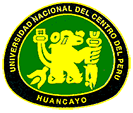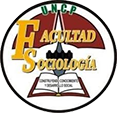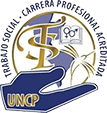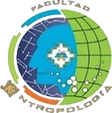Evaluation of the action of the Qali Warma National School Feeding Program in the COVID-19 pandemic in the district of Ate, 2020
DOI:
https://doi.org/10.26490/uncp.sl.2022.6.2.1605Keywords:
componente alimentario, componente educativo, Comité de Alimentación Escolar, pandemia, programa de alimentación escolarAbstract
The general objective of this research was to evaluate the action of the Qali Warma National School Feeding Program in the COVID-19 pandemic in the Ate district, 2020. The study was of a mixed approach, of a basic type with a triangulation design (DITRIAC). The selection of the participants was made for convenience, considering several inclusion criteria, and was made up of a group of 2 school feeding committees of the public education institutions of Ate, the interview technique was applied with an interview guide. semi-structured and the technique of the questionnaire having as an instrument the same. The instrument was validated with the binomial test (quantitative type content validity) being less than 0.05 (0.00195). The results showed that through the interview with the experts, conformity is shown for the food products and recommendations for the forms of delivery in each educational institution, in the quantitative results there is a higher percentage and the investigation concludes that the Qali Warma program is a National early childhood public policy instituted to safeguard the comprehensive development of children, being suitable for families that have children of preschool and school age during the pandemic.
References
Agencia de Protección Ambiental de Estados Unidos (13 de octubre de 2021). Coronavirus (COVID-19). https://www.epa.gov/coronavirus
Butler, M. y Barrientos, R. (2020). The impact of nutrition on COVID-19 susceptibility and long-term consequences. Brain Behav Immun, 7(87), 53-54. https://pubmed.ncbi.nlm.nih.gov/32311498/
Beauchamp T. y Childress J. (1994). Principles of Bioedical Ethics. Oxford University Pres, New Cork, 2(1), 148-149.
Bernal, C. (2010). Metodología de la investigación. Administración, economía, humanidades y ciencias sociales (3 ed.). Pearson Educación.
Baena, G. (2017). Metodología de la investigación. Serie integral por competencias (3.ª ed.). Grupo Editorial Patria
Barre, J. y Castro, C. (2021) Deserción educativa generada a raíz de la cuarentena obligatoria durante la pandemia del COVID-19, en estudiantes de básica elemental y media en la ciudad de Quito. Ecuador. [Tesis de Licenciatura] Universidad Central del Ecuador]. Repositorio institucional. https://bit.ly/3F3pDr2.
Castillo, E. y Vásquez, M. (2003). El rigor metodológico en la investigación cualitativa. Colombia Médica, 34(3), pp. 164-167. https://bit.ly/3JZ6Gd4.
Caguana, J. (2019) Relación de la alimentación en el desarrollo del rendimiento académico de escolares de 6to y 7mo grado de la jornada matutina de la unidad educativa fiscal Gral. Eloy Alfaro Delgado. [Tesis de licenciatura] Universidad Católica de Santiago de Guayaquil. Repositorio institucional. https://bit.ly/31z3687.
Committee on World Food Security (2020). Interim Issues Paper on the Impact of COVID-19 on Food Security and Nutrition (FSN). https://bit.ly/3zBYsCH.
Diaz, E. (2019) Evaluación de la gestión del programa Nacional de alimentación escolar Qali Warma, de las Instituciones Educativas del nivel primaria - UGEL 03 de Breña, 2017. [Tesis de maestría] Universidad César Vallejo. Repositorio UCV. https://hdl.handle.net/20.500.12692/36423
Elespuru, Á. (2019). Gestión administrativa y calidad de servicio del programa de alimentación Qali Warma en la I.E.E. Luis Fabio Xammar Jurado, Huacho, 2018. [Tesis de maestría] Universidad César Vallejo. Repositorio UCV. https://bit.ly/3JRSQt0.
ESCALE. (2020). Centros educativos de Huaycán. MINEDU. http://sigmed.minedu.gob.pe/mapaeducativo/
Erokhin, V. y Gao, T. (2020). Impacts of COVID-19 on trade and economic aspects of food security: evidence from 45 developing countries. International journal of environmental research and public health, 17 (16), p. 5775. https://doi.org/10.3390/ijerph17165775
FAO (2020). Alert on the impact of COVID19 on school feeding in Latin America and the Caribbean. http://www.fao.org/americas/noticias/ver/es/c/1266856/
FAO y ECLAC (2020). Food systems and COVID-19 in Latin America and the Caribbean: The role of social protection measures. Santiago. http://www.fao.org/documents/card/en/c/ca9435es
FAO (2020). Healthy eating tips to face the COVID-19 crisis. http://www.fao.org/americas/noticias/ver/es/c/1267856/
FAO y CELAC (2020). Food Security under the Pandemic of COVID-19 Santiago, FAO. https://doi.org/10.4060/ca8873es
FAO y ECLAC (2020). Food systems and COVID-19 in Latin America and the Caribbean: Health risks; worker safety and safety. FAO. http://www.fao.org/documents/card/en/c/ca9112es
FAO y OMS (2020). COVID-19 and food safety: guidance for food businesses. https://bit.ly/3G4OXOY.
FAO, IFAD, UNICEF, WFP y WHO (2020). The State of Food Security and Nutrition in the World. Transforming food systems for affordable healthy diets. FAO. http://www.fao.org/3/ca9692en/online/ca9692en.html
Fernández, V. (2020). Types of justification in scientific research. TES Entrepreneurship, 4(3), 65-76. https://doi.org/10.33970/eetes.v4.n3.2020.207
Food and Agriculture Organization of the United Nations (2020) Community of Latin American and Caribbean States. Food Security under the Pandemic of COVID-19. https://www.alainet.org/es/articulo/206214
Food and Agriculture Organization of the United Nations (2020). Analysis and responses of Latin America and the Caribbean to the effects of COVID-19 on food systems. http://www.fao.org/americas/publicaciones-audio-video/covid19-y-sistemas-alimentarios/es/
Francke, P. y Acosta, G. (2021). Impacto del programa de alimentación escolar Qali Warma sobre la anemia y la desnutrición crónica infantil. Apuntes: Revista de Ciencias Sociales, 48(88), pp. 151-190. https://doi.org/10.21678/apuntes.88.1228
Gómez, E. (30 de octubre de 2011). el modelo interpretativo. Eje metodológico. http://ejemetupnle94.blogspot.com/2011/10/
Hernández, R., Fernández, C., & Baptista, P. (2014). Metodología de la investigación (6.ª ed.). McGraw-Hill.
Inter-American Development Bank (2021). School feeding initiatives during health emergency. FAO. https://bit.ly/339Xp0y.
INEI. (2018). Provincia de Lima, Resultados definitivos de los Censos Nacionales 2017. https://bit.ly/3eWcyFJ.
Martínez, A. (2021). Perú y su verdadera cifra de fallecimientos por covid. New York Times. https://nyti.ms/3t1fGbu.
Martínez, L. (2020). Los programas de alimentación escolar en América Latina. Archivos Latinoamericanos de Nutrición. 65(1), 1-12. https://bit.ly/3HISjaE.
Ministerio de Sanidad. (2014). Malnutrición. Advanced Medical Nutrition. https://bit.ly/3qYq3dx.
Ministerio de Inclusión Social (2020). Memoria Anual 2020. Programa de Alimentacion Escolar Qali Warma Lima – Peru. https://info.qaliwarma.gob.pe/memoria-institucional/8/
Ministerio de Sanidad Enfermedad por nuevo coronavirus (COVID-19) https://bit.ly/3q3RuU6.
Ministerio de Salud de Chile (2018). Encuesta Nacional de Salud 2016-2017. Segunda entrega de resultados. https://www.minsal.cl/wp-content/uploads/2018/01/2-Resultados-ENS_MINSAL_31_01_2018.pdf
Murua, C. y Zapata, M. (2020). The Impact of the Pandemic on School Feeding Programs: Foundation for the Development of Sustainable Policies. Fundeps. https://bit.ly/3F3rwUE.
Naja, F. y Hamadeh, R. (2020). Nutrition amid the COVID-19 pandemic: a multi-level framework for action. Eur J Clin Nutr. 8(1), 1-5. https://go.nature.com/3JJY4qF.
Ore, V. (2016). Supervisión en la Calidad del Servicio para el Programa de Alimentación Escolar Qali Warma Distrito SJL- 2015. [Tesis para obtener el grado académico de Maestría en gestión pública, UCV]. Repositorio UCV. https://hdl.handle.net/20.500.12692/4283
Organización Mundial de la Salud (2019). Brote de enfermedad por coronavirus (COVID-19).https://www.who.int/es/emergencies/diseases/novel-coronavirus-2019
Organización de las Naciones Unidas para la Alimentación y la Agricultura (2020). Es crucial mantener las cadenas alimentarias mundiales en la crisis COVID-19. FAO. http://www.fao.org/nicaragua/noticias/detail-events/en/c/1268844/
Pacherre, E. (2020). en su investigación Percepción del Programa Nacional de Alimentación Escolar “Qali Warma” desde la perspectiva de los beneficiarios: Caso de un distrito de Lima. [Tesis para obtener el grado académico de Maestría en gestión pública, UCV.]. Repositório UCV https://hdl.handle.net/20.500.12692/42712
D.S. Nº 066-2004-PCM. Estrategia Nacional de Seguridad Alimentaria 2004-2015. Diario Oficial El Peruano (2004). https://n9.cl/6upwg
Radhouane, B. (2021). Food safety in Qatar during the COVID-19 pandemic. Journal Editors Medwin Tecnologis Food and Nutrition. https://bit.ly/33c9Vg3
Seid, G. (2016) Procedimientos para el análisis cualitativo de entrevistas. Una propuesta didáctica. Instituto Gino Germani – UBA.
Sánchez, A. y De La Fuente, V. (2020). COVID-19: quarantine, isolation, social distancing and confinement, are they the same? Asociación Española de Pediatría 93(1), p. 73-74. https://www.analesdepediatria.org/es-covid-19-cuarentena-aislamiento-distanciamiento-social-articulo-S1695403320301776
Sánchez, H. y Reyes, C. (2006). Metodología y Diseños en la Investigación Científica. Visión Universitaria.
Secretaria General Comunidad Andia, CVP y OIRSA. (2020). Directrices generales de bioseguridad para la prevención del riesgo de contagio por COVID-19 en el medio rural. https://bit.ly/3q2HMRI.
Secretaría General de la Comunidad Andina (SGCAN) Comité Veterinario Permanente del Cono Sur (CVP) Organismo Internacional Regional de Sanidad Agropecuaria (OIRSA). (2020). Directrices Generales de Bioseguridad para la prevención del riesgo de contagio del COVID-19 en el medio rural. Lima-Perú https://bit.ly/3G5bds2.
United Nations Population Fund (2020) Covid-19 Technical Report: A Gender Approach to Protecting Sexual and Reproductive Health and Rights and Promoting Gender Equality. https://bit.ly/3q0haRd.
Vargas, D. y Gallardo, E. (2021). Hábitos alimentarios en estudiantes de la Universidad Técnica del Norte en tiempos de Covid-19. Año 2021 [Tesis de pregrado] Universidad Técnica del Norte. Repositorio institucional. http://repositorio.utn.edu.ec/handle/123456789/11072
Downloads
Published
Issue
Section
License
Copyright (c) 2022 Julia Idola Chávez Villanueva

This work is licensed under a Creative Commons Attribution 4.0 International License.

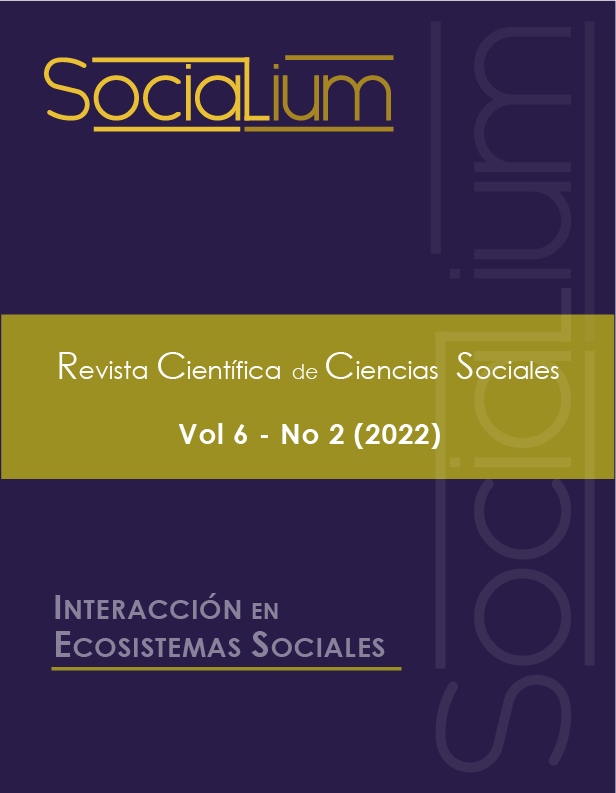

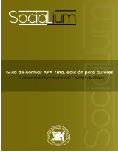




.jpg)










